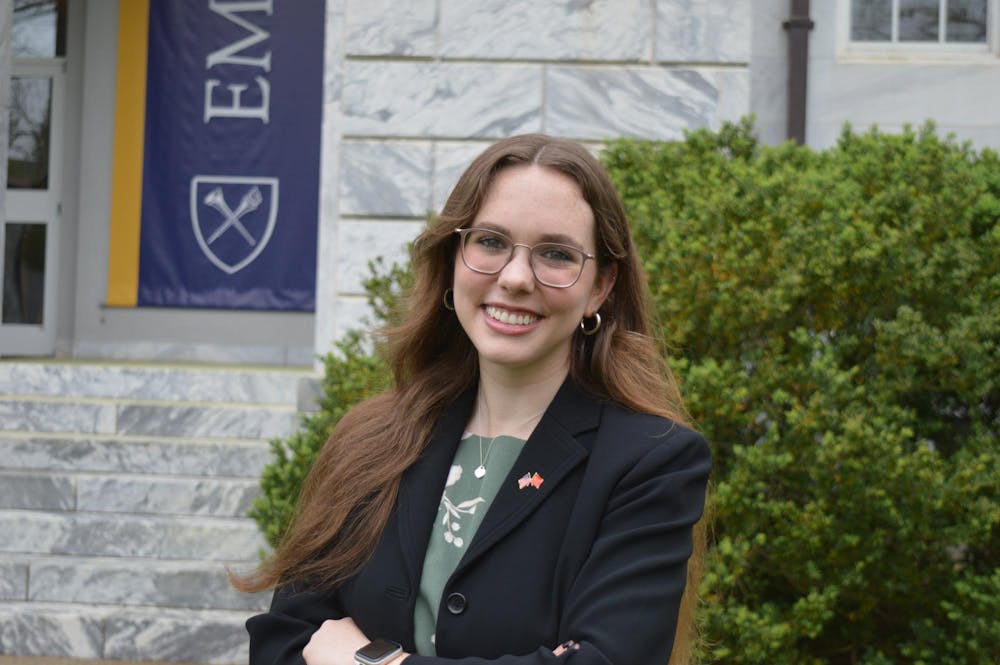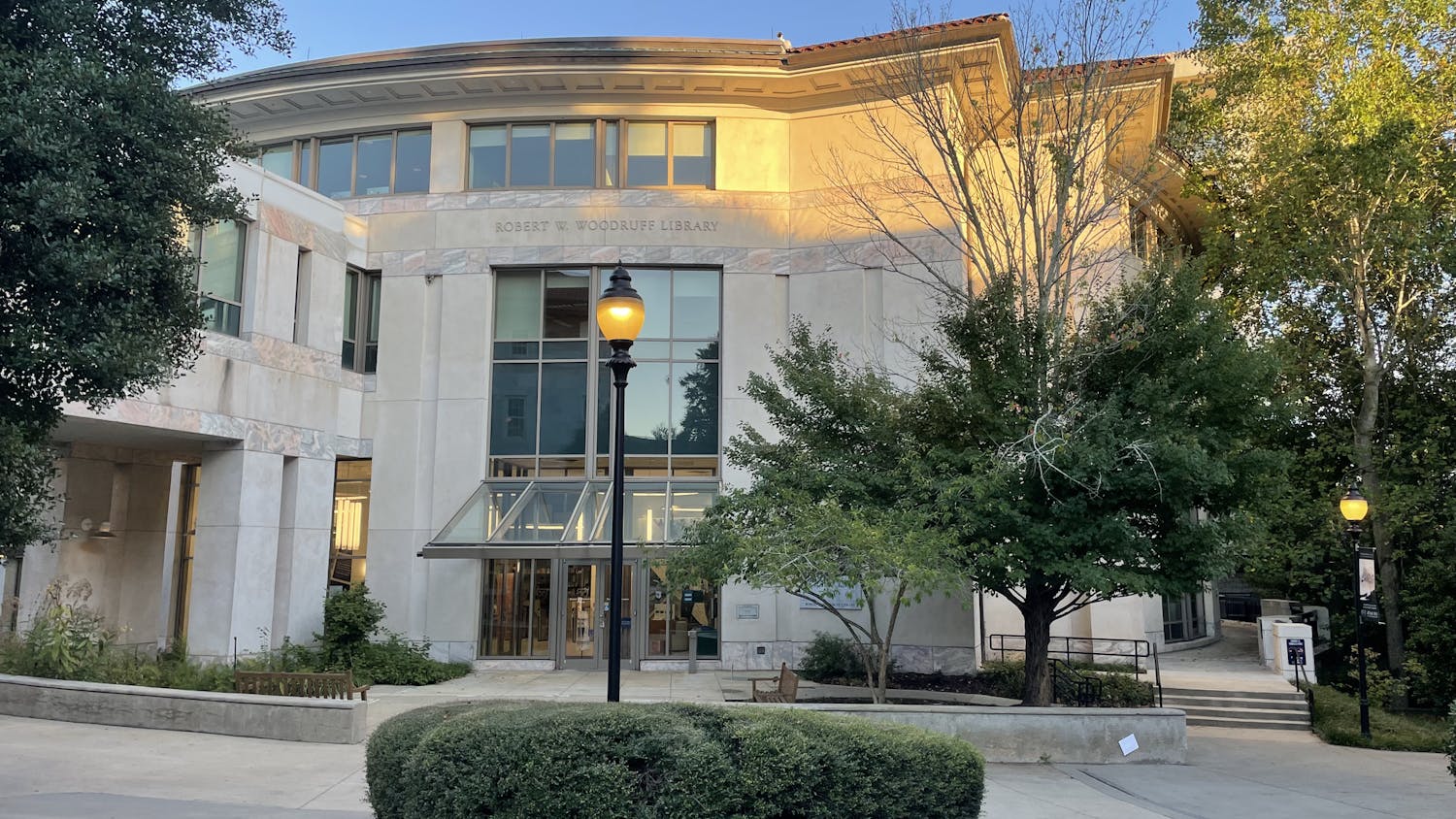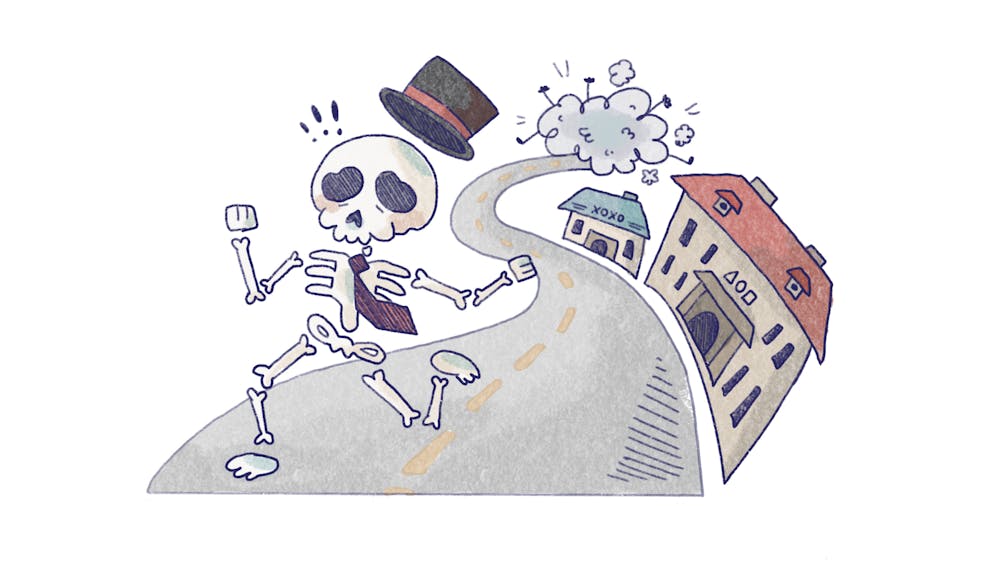When I sat down in my first-ever Mandarin class freshman year, I was so clueless that I did not even know the language lacks an alphabet. A debate topic on the Belt and Road Initiative, a global infrastructure development project spearheaded by China, in high school sparked my interest in U.S.-China relations, and, on a whim, I decided to enroll in Emory University’s “Chinese 101.” It turned out to be one of the best decisions I ever made.
Once I got over the initial learning curve and difficulties of Mandarin — having no alphabet, four tones and stroke order for written characters — I knew I was in the right place. I was fascinated by the language, history and politics of China, and I enrolled in as many Chinese studies courses as my schedule allowed.
Beyond the classroom, I joined the Emory Journal of Asian Studies and was exposed to the excellent research my peers were conducting across all disciplines. Things really solidified for me when I began my internship at The Carter Center’s China Focus initiative during my junior year. For the first time, I felt like I was really making a difference in my larger goal to reduce misunderstandings and improve relations between the United States and China.
Under the mentorship of my colleagues at The Carter Center, I wrote articles and conducted interviews for our website, The U.S.-China Perception Monitor. The website runs in both English and Mandarin, publishing content focused on bilateral relations and U.S.-China public opinion. One of my favorite pieces was about panda diplomacy, published right as the Atlanta Zoo sent its pandas back to China with no promise that new ones would ever return. It might seem silly to think of clumsy pandas as a diplomatic tool, but cultural exchanges and people-to-people connections are more important than ever. I still work for China Focus, serving as an editor for The U.S.-China Perception Monitor, and I have continued to learn from and talk to some amazing scholars in this field.
During the spring semester of my junior year, my boss at The Carter Center asked me to show a group of students who were visiting from Beijing around Emory’s campus. As I was giving them a tour, the professor leading the trip offered me a spot in a two-week summer program at their school, Beijing Foreign Studies University (BFSU). I could not believe I was actually going to get the chance to go to China. Several months later, I embarked on the 20-hour journey to Beijing. The program had 80 participants from over 30 countries, and even though we only stayed in Beijing, I felt like I traveled all over the world from our conversations alone. I checked major items off my bucket list, including climbing the Great Wall, seeing the Forbidden City and breaking my vegetarianism to try Peking duck. Most importantly, experiencing China firsthand reaffirmed my belief that cooperation is more important than competition. As is the motto of The Carter Center, diplomats between our two countries should be focused on “waging peace,” not war.
It is no secret that U.S.-China relations are currently the worst they have been in decades. I have faced many barriers in trying to conduct research in China because of uncertainty and fear. While Emory has opened many doors for me, it has also exposed the barriers in the Chinese studies field. The people I have met along the way have shaped my belief that people-to-people connections are the best way forward. One of my best friends Yingyi, an international student who went to high school in Shanghai and interned at The Carter Center with me, cooks me my favorite Chinese dish whenever we meet. We were lucky enough to be in Beijing together at the same time, and she showed me some of her favorite parts of the city.
Jolie, a BFSU student who was part of the Emory tour, has become one of my closest friends. Despite the 12-hour time difference, we call every week and practice Mandarin and English. Our friendship is a small but mighty bridge connecting our two countries. Both Jolie and Yingyi have played a huge role in allowing me to break down my own biases perpetuated by the villainization of China in American media and increase my tolerance of other cultures, systems of governance and ways of life.
I am incredibly grateful for the opportunities Emory and The Carter Center have provided for me to explore this field as an undergraduate, all because of my decision to take “Chinese 101.” After graduating, I am committed to pursuing a legal career focused on human rights, international cooperation and U.S.-China relations.
Miranda Wilson (25C) is from Charlotte, N.C., and majored in international studies with a minor in Chinese studies. Wilson was involved in the Atlanta Urban Debate League, Barkley Forum competitive debate team, The Emory Wheel’s crossword desk, Emory Journal of Asian Studies, China Focus at The Carter Center and IDEAS Fellowship. After graduation, she will continue her education at Vanderbilt University Law School (Tenn.), pursuing a career in international law.








